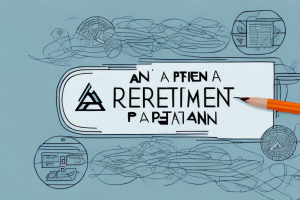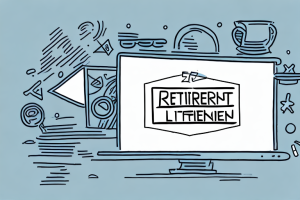Retirement readiness is a growing concern in our society today. As the years go by, the statistics on retirement unpreparedness continue to alarm us. It is essential to understand the reasons behind this lack of retirement savings and the impact it has on individuals and society as a whole. In this article, we will explore these issues in detail, while also providing tips, strategies, and insights to help you assess your own retirement preparedness.One of the key reasons behind the lack of retirement savings is the failure to start planning early. Many individuals fall into the misconception that they have plenty of time and end up procrastinating. However, the earlier you start saving for retirement, the better off you will be. Even small contributions made consistently over time can make a significant difference.Young adults, in particular, often underestimate the importance of saving for retirement. With financial pressures such as student loans and the desire to enjoy their youth, many young adults push retirement planning to the back burner. However, starting early allows for compound interest to work its magic and can significantly increase your long-term savings.Another challenge in retirement planning is navigating the balance between saving for the future while supporting a family. The expenses of raising children and providing for their needs can often take precedence over saving for retirement. However, it is crucial to find a way to prioritize both, as neglecting retirement savings can lead to financial hardships later in life.Employers also play a vital role in promoting retirement readiness among employees. Many companies offer retirement savings plans, such as 401(k)s, and contribute matching funds. Taking advantage of these employer-sponsored plans can significantly boost your retirement nest egg. It is essential to understand the available options and make the most out of your employer’s contributions.In addition to employer-sponsored plans, there are several retirement savings options to explore, such as Individual Retirement Accounts (IRAs). Understanding the differences between these options and their unique benefits can help you make the best choice for your circumstances. Taking advantage of these vehicles can provide you with tax advantages and added flexibility.Overcoming financial obstacles is another crucial aspect of ensuring a secure retirement. Life can throw unexpected curveballs, such as job loss, medical emergencies, or economic downturns. It is essential to have a contingency plan and adapt to these situations while continuing to save for retirement. Seeking professional advice and developing a financial plan can help you overcome these obstacles and stay on track.If you find yourself behind on your retirement savings goals, it is not too late to take action. By reassessing your current situation and making adjustments to your saving and spending habits, you can make significant progress towards catching up. This might include increasing your savings rate, reducing unnecessary expenses, or exploring additional income opportunities.While Social Security can provide a safety net during retirement, relying solely on it may not be sufficient. It is essential to understand the benefits and drawbacks of Social Security and explore other income sources. These sources might include part-time work, starting a small business, or investing in rental properties. Diversifying your income streams can add stability and ensure a comfortable retirement.When creating a personalized retirement plan, it is crucial to take into account your specific needs and goals. Factors such as desired lifestyle, expected medical expenses, and travel plans should all be considered. Working with a financial advisor can help you develop a plan tailored to your unique circumstances, ensuring that you are well-prepared for retirement.Strategies for maximizing Social Security benefits are also worth exploring. Understanding how your benefits are calculated and knowing when and how to claim them can make a significant difference in your retirement income. With careful planning and knowledge of the system, you can optimize your Social Security benefits and improve your financial situation.During retirement, it is essential to explore alternative income sources beyond traditional retirement accounts and Social Security. Part-time work, consulting gigs, or even turning a hobby into a small business can provide both financial and personal fulfillment. Exploring these options can help you maintain an active lifestyle while supplementing your retirement income.Assessing the impact of healthcare costs on retirement savings and planning is also critical. With rising medical expenses, it is essential to account for these costs in your retirement budget. Understanding Medicare options, considering long-term care insurance, and staying healthy are all ways to minimize the financial burden of healthcare in retirement.Entrepreneurs and self-employed individuals face unique challenges when it comes to retirement planning. Without employer-sponsored plans, it is crucial to take proactive steps to save for retirement. Options such as Simplified Employee Pension (SEP) IRAs or Solo 401(k)s can provide opportunities for self-employed individuals to save for retirement tax-efficiently.Lastly, retirement is not just a financial transition; it is also a psychological one. Coping with the change from a structured working life to a more open-ended retirement can be challenging. Finding purpose, maintaining social connections, and pursuing hobbies and passions are all ways to ease this transition and enhance your overall well-being.In conclusion, most people are not adequately prepared for retirement. The rising concern of retirement readiness stems from alarming statistics that reveal the lack of retirement savings among individuals. Understanding the reasons behind this unpreparedness is crucial, as it impacts both individuals and society at large. By assessing your own retirement preparedness, debunking common misconceptions, and taking proactive steps towards saving for retirement, you can enjoy a secure and fulfilling retirement.
Are most people not prepared for retirement?



